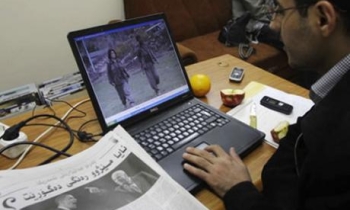Zimbabwe is reportedly mulling over a review of the controversial Access to Information and Protection of Privacy Act (AIPPA), following a hardhitting report by the African Union's human rights watchdog that criticised the law for suppressing freedom of expression, according to the Media Institute of Southern Africa (MISA).

The Attorney General's office in Zimbabwe has notified the African Commission on Human and Peoples' Rights (ACHPR) that the Minister of Information and Publicity, Tichaona Jokonya, is reviewing the entire contents of the AIPPA with a view to removing offending provisions in the Act.
The ACHPR, which is the AU's human rights body, expressed concern in a recent report about the "continuing violations and the deterioration of the human rights situation in Zimbabwe, the lack of respect for the rule of law and the growing culture of impunity."
According to the Guardian, which obtained a copy of the report, the ACHPR found that President Robert Mugabe violated the AU's human rights charter, to which Zimbabwe is a signatory. It also called for the repeal of several restrictive laws and for an AU fact-finding mission to the country.
The report will be discussed by African heads of state at the AU's annual meeting, which runs from 16 to 24 January 2006 in Khartoum, Sudan. If adopted, it would put significant pressure on Zimbabwe to improve its human rights record.
The ACHPR has also urged the government to amend or repeal Constitutional Amendment No 17 which empowers the government to withdraw the passports of citizens who undermine "national interests" during their visits abroad, MISA said.
The government has also agreed to consider a complaint lodged by the publishers of the Daily News that challenges a 2003 ruling by Zimbabwe's Supreme Court. The court ruled that Associated Newspapers violated the AIPPA.
MISA's Zimbabwe chapter has actively campaigned against the AIPPA, including presenting a paper at the ACHPR's November 2005 meeting that outlined its concerns about the Act's repressive provisions.
Meanwhile, the Committee to Protect Journalists (CPJ) has condemned the detention of journalist Sydney Saize who has been held since Wednesday last in the eastern town of Mutare. Police accused Saize of working without accreditation and filing a "false" story for the Voice of America, according to MISA. He has not been charged.
Police alleged that Saize filed a false story for Studio 7, the Zimbabwe service of VOA, alleging that militants of the ruling ZANU-PF party had beaten up teachers in Mutare. Saize, who worked for the now banned Harare-based Daily News, faces one charge under the AIPPA of practicing journalism without a license which carries a prison term of two years. He could also be charged under the Public Order and Security Act (POSA) with publishing a falsehood, which carries a penalty of five years in jail.
"It is outrageous that police should detain Sydney Saize for reporting on a matter of public interest," said CPJ Executive Director Ann Cooper. "He should be released immediately and these ridiculous allegations dismissed."
Saize has already been charged under AIPPA, along with a group of other Daily News journalists, with working illegally for the paper before it was shut in September 2003. One of the journalists, Kelvin Jakachira, was tried and acquitted in 2005, on the basis that he had applied for accreditation but had never received a reply from the government controlled Media and Information Commission.
In another development, Reporters sans Frontières (RSF has voiced dismay today at learning that Tafataona Mahoso, the head of the Media and Information Commission (MIC), recently threatened the weekly Financial Gazette (FinGaz), one of Zimbabwe's last independent news media, with withdrawal of its licence.
The threat was made after FinGaz refused to publish a note retracting a December 1, 2005 article questioning the independence of the MIC, which was set up to monitor and regulate the Zimbabwean media and which has proved to be under the control of the government and the intelligence agencies.
"The MIC has closed down four newspapers in three years, and clearly takes its order from the most senior members of the government," RSF said. "Reduced to functioning as branch of the police, the MIC continues to impose the law of silence, especially when a newspaper dares to criticise it. As the African Union has apparently decided to try to loosen the vice-like grip on Zimbabwe's press, it should not let one of the last independent publications be shut by Mugabe's and Mahoso's thought tribunal."
FinGaz editor Sunsleey Chamunorwa and his deputy, Hama Saburi, were ordered to report to MIC headquarters during the week of 9-13 January. The MIC is currently carrying out its annual reexamination of newspaper licences and journalists' accreditation, and Mahoso threatened to withdraw FinGaz's licence.
On December 8, the MIC had ordered FinGaz to retract a report published the previous week that the MIC originally agreed to grant a licence to the owner of the Daily News and then changed its mind under pressure from the Central Intelligence Organisation (CIO). In its letter to FinGaz, the MIC said it would choose the journalist who wrote the retraction. The newspaper refused to comply, and there was no mention of the incident in the following issues, published on December 15 and January 5.








